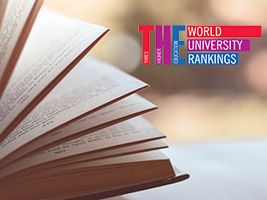5 Ways To Fund Your Education
by StudyMalaysia.com on July 16, 2015 | Top Stories

“Have you started planning for your higher education? Do you know how much the tuition for a bachelor’s degree costs? Can you afford to study at a private college or university? If your personal resources aren’t enough, here are some funding options you can consider.”
Higher education is one of the most important investments you will make in your lifetime. Going to university or college brings new and exciting opportunities, but it also comes with a big chunk of expenses that include tuition, books, accommodation, and day-to-day living costs.
With the increasing cost of education, planning ahead is essential to ensure your education journey won’t be interrupted by financial barriers. If your personal resources aren’t enough, you will need to consider other options. While not all options may be possible for you, it is worthwhile to find ways of funding your education without accumulating debt. Here are some funding possibilities you can explore:
- scholarships
- bursaries
- grants
- tuition fee waiver or discount
- financial loans
Scholarships

Scholarships are monetary awards given to support a student’s education. They are generally awarded based on academic or other achievements and are non-repayable, which means you won’t have to pay the money back. Scholarships are awarded by the government, non-government organisations, corporations and independent foundations.
To apply for a scholarship, a student will have to submit an application and go through a selection process followed by an interview. It is important to research carefully the type of scholarship you want to apply for. Many (but not all) scholarships come with a bond so make sure you’re aware what all the terms and conditions are. Successful scholarship candidates often are knowledgeable about the application process and are well prepared for the interview.
Bursaries
"Providers of scholarships, bursaries and grants may require its recipient to pay back part or all of the award if, for example, the student withdraws from the programme without completing it."
You may have heard people using the terms ‘scholarship’ and ‘bursary’ interchangeably, however, bursaries are usually non-competitive and automatic, and often based on financial need without emphasis on academic standing. In contrast, scholarships are competitive in the sense that you usually have to apply for them.
Grants
Like scholarships, grants are monetary funds offered by a government agency, corporation, non-profit organisation, higher education institution, foundation or trust to a student; and doesn’t have to be repaid. The main difference between grants and scholarships is that a grant is often need-based (e.g. the student is financially disadvantaged), while scholarships are usually merit-based (e.g. the student is a high achiever academically and well-rounded in extra-curricular activities). Grants are also given to students who carry out academic research projects.
Grants and bursaries are generally awarded based on financial need but they can also be awarded based on several other factors, including athletic ability, academic achievement, community involvement and other special abilities.
Tuition Fee Waiver or Discount

Many private higher education institutions in Malaysia offer tuition fee waivers or discounts to their students based on merit (for example, based on outstanding achievement in academics, sports, or leadership roles). The percentage of tuition fee waiver varies from 25% to a full waiver and is often subject to renewal on a semester basis. In other words, the recipient is often required to maintain a minimum CGPA to continue enjoying the tuition fee waiver.
These tuition fee waivers can be offered before you begin an undergraduate programme (based on your previous achievements) or during the programme (based on your current achievements at that institution).
Financial Loans
"Although some bursaries and grants may not stress on high academic achievement, its recipients often still need to have a minimum level of academic achievement."
Many students would of course wish for a scholarship, but if you are not offered one, don’t fret. There are other alternatives to scholarships such as financial loans. Financial loans are available to students who plan to study in Malaysia or abroad. These loans help students with their tuition fees, books and living expenses. Most financial loans will need a guarantor, for example, parents to guarantee that the loan will be repaid. However, students with special cases such as those whose parents have financial difficulties or those who no longer have parents may be exempted from having a guarantor.
In certain cases, a loan can be converted to a scholarship based on the targets and requirements set by the organisation. It is advisable to always look through the loan agreement, and be conversant on the contents, especially the fine print.
Financial loans are funded by government bodies, financial insitutions and private corporations or organisations. Checkout our article on: Students loans offered by banks and other organisations in Malaysia
You May Also Be Interested In...
Your education pathways and opportunities after UEC
![Your education pathways and opportunities after UEC - StudyMalaysia.com]() Students who have attained a UEC qualification can apply directly to a...
Students who have attained a UEC qualification can apply directly to a...选择适合你的大学先修课程:私立大学和学院的基础课程
![选择适合你的大学先修课程:私立大学和学院的基础课程 - StudyMalaysia.com]() 如果已拥有SPM资格,并且打算攻读学士学位,那么你�...
如果已拥有SPM资格,并且打算攻读学士学位,那么你�...MOHE approves pre-U enrolment using SPM trial results
![MOHE approves pre-U enrolment using SPM trial results - StudyMalaysia.com]() If you’re planning to pursue a pre-university, certificate or diplom...
If you’re planning to pursue a pre-university, certificate or diplom...�Results For Four Subjects in THE World University Rankings 2018 Announced
![�Results For Four Subjects in THE World University Rankings 2018 Announced - StudyMalaysia.com]() The Times Higher Education subject rankings 2018 for four subjects wer...
The Times Higher Education subject rankings 2018 for four subjects wer...A favourite with a twist! Daging Masak Hitam with Bamboo Shoot
![A favourite with a twist! Daging Masak Hitam with Bamboo Shoot - StudyMalaysia.com]() Daging Masak Hitam is a popular dish to serve at almost any sort of fa...
Daging Masak Hitam is a popular dish to serve at almost any sort of fa...Program Ijazah Sarjana Muda Perguruan (PISMP) 2016 Intake Now Open
![Program Ijazah Sarjana Muda Perguruan (PISMP) 2016 Intake Now Open - StudyMalaysia.com]() PISMP is a bachelor's degree programme (with honours) offered by ...
PISMP is a bachelor's degree programme (with honours) offered by ...






























